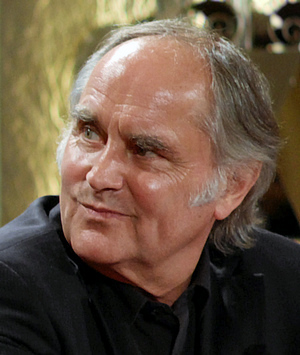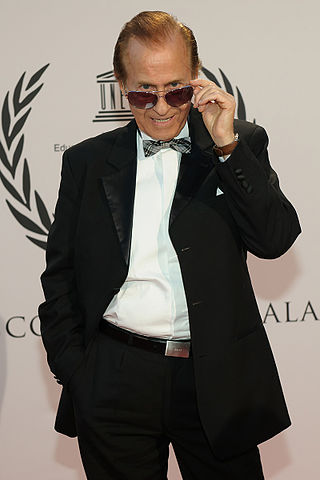Related Research Articles

Ludwig Quidde was a German politician and pacifist who is mainly remembered today for his acerbic criticism of German Emperor Wilhelm II. Quidde's long career spanned four different eras of German history: that of Bismarck ; the Hohenzollern Empire under Wilhelm II (1888–1918); the Weimar Republic (1918–1933); and, finally, Nazi Germany. In 1927, he was awarded the Nobel Peace Prize.

Manfred Rommel was a German politician belonging to the Christian Democratic Union (CDU), who served as mayor of Stuttgart from 1974 until 1996. Rommel's policies were described as tolerant and liberal, and he was one of the most popular municipal politicians in Germany. He was the recipient of numerous foreign honours. He was the only son of Wehrmacht field marshal Erwin Rommel and his wife Lucia Maria Mollin (1894–1971), and contributed to the establishment of museums in his father's honour. He was also known for his friendship with George Patton IV and David Montgomery, the sons of his father's two principal military adversaries.

Senta Verhoeven is an Austrian-German actress. She received many award nominations for her acting in theatre, film and television; her awards include three Bambi Awards, two Romys, an Adolf Grimme Award, both a Deutscher and a Bayerischer Fernsehpreis, and a Goldene Kamera.

Elke Sommer is a German actress. She appeared in numerous films in her heyday throughout the 1960s and 1970s, including roles in The Pink Panther sequel A Shot in the Dark (1964), the Bob Hope comedy Boy, Did I Get a Wrong Number! (1966), Agatha Christie's And Then There Were None (1974), and the British Carry On series in Carry On Behind (1975).

Michael Herbig is a German comedian and actor. His nickname "Bully" became part of his stage name as a comedian.

Michael Verhoeven is a German film director.

Carl P. Pulfrich was a German physicist, noted for advancements in optics made as a researcher for the Carl Zeiss company in Jena around 1880, and for documenting the Pulfrich effect, a psycho-optical phenomenon that can be used to create a type of 3-D visual effect. Carl Pulfrich was the brother-in-law of Heinrich Hertz.

Michael Holm is a German singer, musician, songwriter and record producer. He is primarily known as a singer of Schlager music. Although his first appearance in the hit parade was in 1962, he had his first big hit in 1969. "Mendocino", the German adaptation of a song by the Sir Douglas Quintet, was the biggest selling single that year in (Germany). The record was released in September 1969, reached number three for five weeks, selling over a million copies. Ariola presented him with a gold record in October 1970.

Jutta Speidel is a German actress.
Helga Schubert is a German psychologist and author.

Géza von Radványi was a Hungarian film director, cinematographer, producer and writer.

Klaus Dieter Laser was a German actor. Laser's career spanned over five decades, appearing in both German and English-language productions. He achieved recognition for his lead role in the 2009 film The Human Centipede and also starred in the third entry in 2015. On television, he had a recurring role on Lexx from 1998 to 2000.

Marc-Uwe Kling is a German songwriter, author, and Kabarett artist. He studied philosophy and drama at Freie Universität Berlin.
Volker Vogeler was a German film director and screenwriter. He directed 13 films between 1967 and 2000. His 1971 film Jaider, der einsame Jäger was entered into the 21st Berlin International Film Festival.
Rosalie Helga Lina Zech, known as Rosel Zech, was a German theater and film actress, especially with the "Autorenkino" movement, which began in the 1970s.
Senta Geißler was a German painter. Despite her gender, in 1919 she enrolled at the Academy of Fine Arts in Karlsruhe. She was one of the first women to be permitted to do this.

Elke Erb is a German author-poet based in Berlin. She has also worked as a literary editor and translator.
Margit Geissler (1958–2016) was a German model, film and television actress. She co-hosted the 1985 competition to select the German entry for the Eurovision Song Contest. She was married to the film director Sigi Rothemund.

The Deutsche Synchronkartei is an online database of voice actors in film and television productions. It is listed as a scientific and freely accessible source of information in the Datenbank-Infosystem.
References
- ↑ "Das kann ja heiter werden". Fernsehserien.de. Retrieved 8 October 2013.